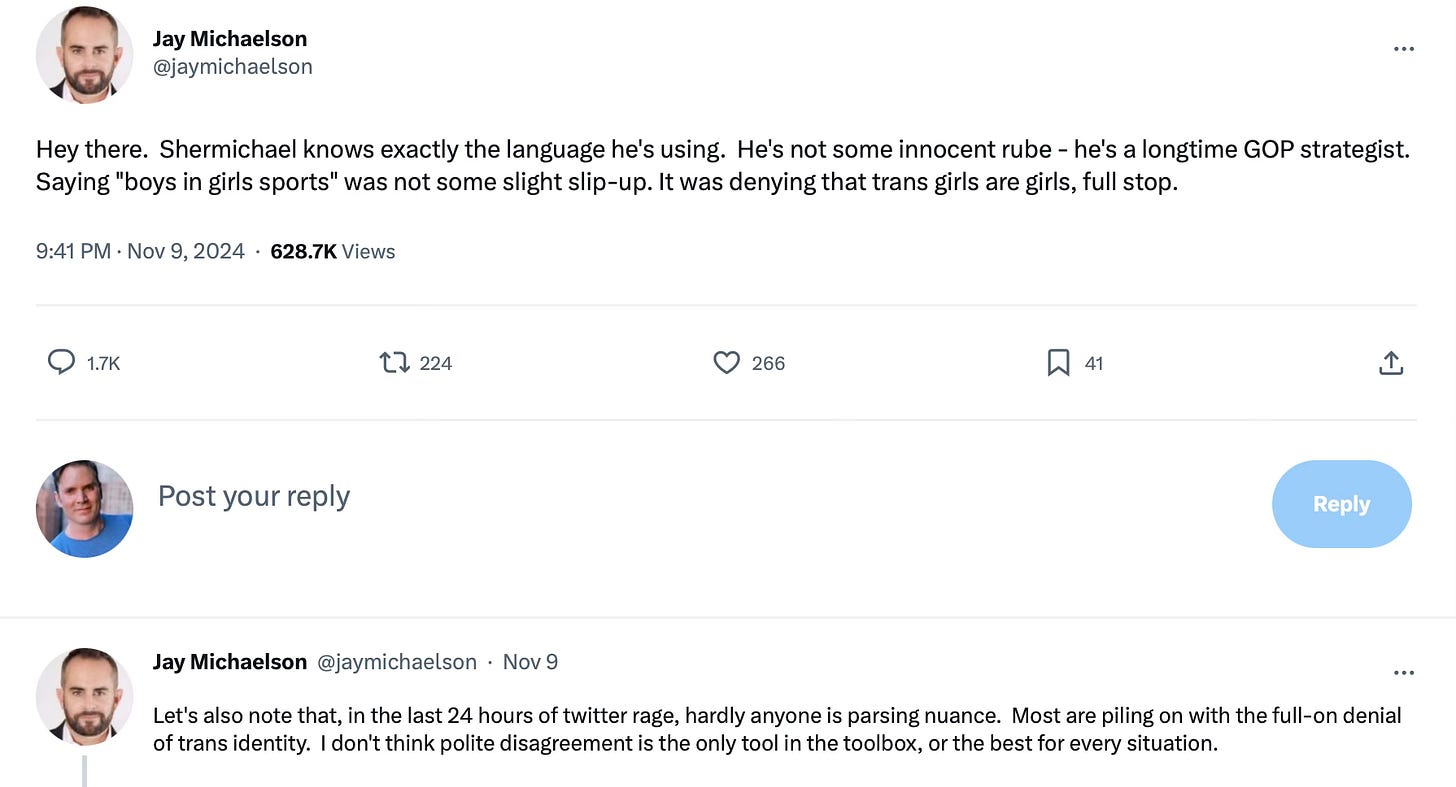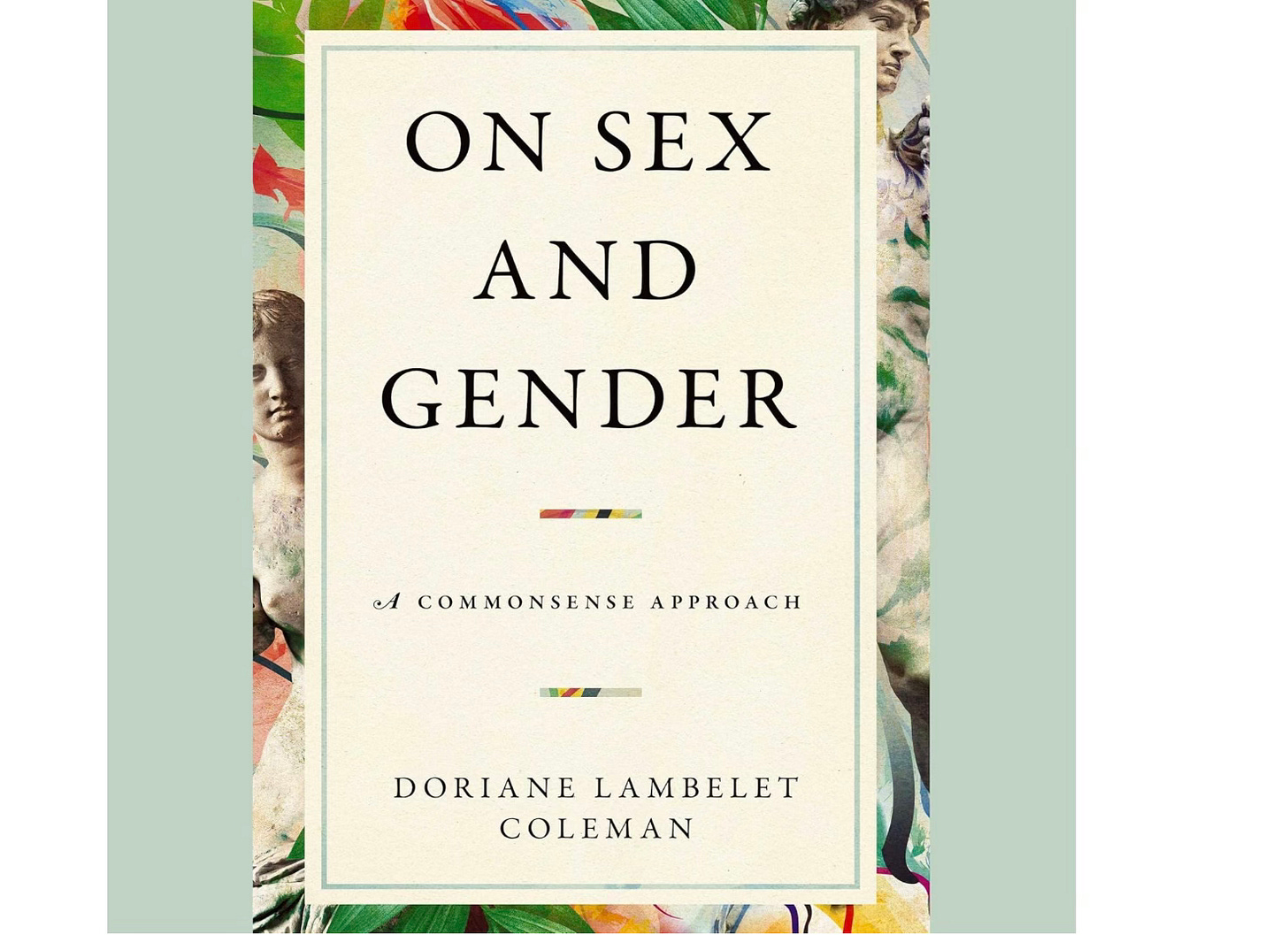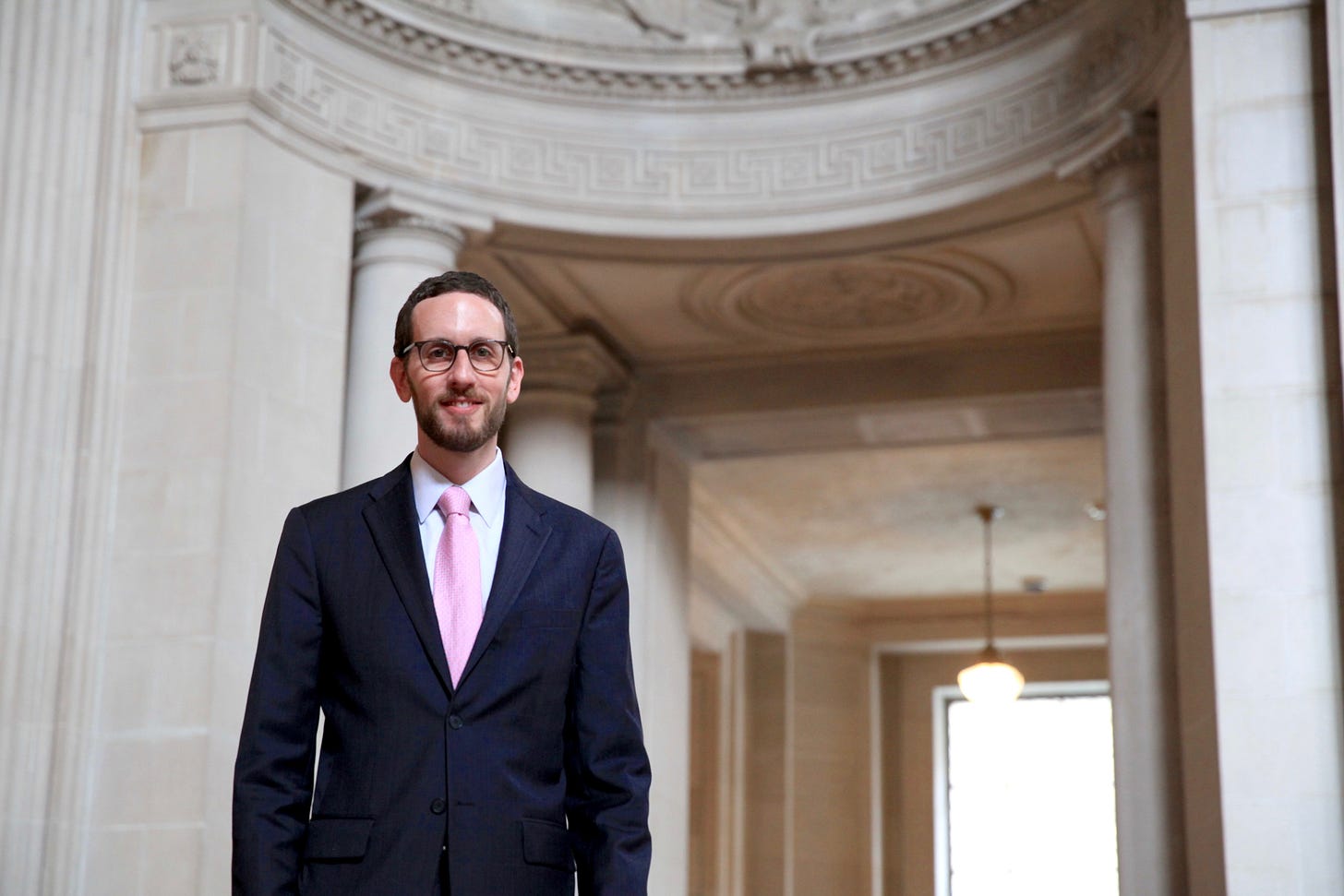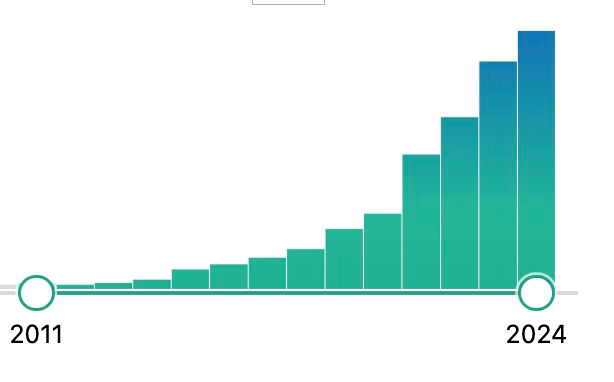How An Inability to Clearly Define ‘Sex’ vs. ‘Gender’ Has Left Democrats In a Mess
Language matters. By insisting there’s no difference between 'sex' and 'gender' and that sex is “assigned at birth,” progressives have alienated many people from the transgender cause.

In the wake of Kamala Harris’ devastating loss to Donald Trump, recriminations and finger pointing have seized the Democratic party. Given that Trump spent tens of millions of dollars on attack ads faulting Harris for her support of certain transgender-related policies, the party is undergoing an internal paroxysm over whether that support is an albatross worth shedding.
Two Democratic congressmen—Tom Suozzi of New York and Seth Moulton of Massachusetts—said immediately after the party lost the White House that they were uncomfortable with natal boys participating in girls’ sports. The left’s support for such inclusion, they suggested, had cost Dems dearly.
Trans activists and their allies have scrambled to deflect blame and to shore up support within the Democratic party as the trans community faces what Trump has promised will be an onslaught against them during his second term. Many have pointed to Republicans’ long history of, they argue, cynically stoking animus toward minority groups—see: gays in 2004—to ride the wedge-issue train to victory. (Political scientists have since concluded that Karl Rove’s strategy of leveraging anti-gay-marriage ballot initiatives in swing states to bolster Republican turn-out was not, in fact, instrumental in securing George W. Bush a second term.)
Over the weekend, a dispute over trans kids’ participation in sports during a CNN panel discussion laid bare the conundrum the left faces about trans rights. While Democrats like Reps. Moulton and Suozzi are evidently seeking to appeal to voters who might be alienated by certain trans-related policies, others on the left betray no wish to compromise in their support for policies concerning trans youth in particular.
Conservative commentator Shermichael Singleton asserted on the CNN panel: “I think there are a lot of families out there who don’t believe boys should play girls’ sports.” Liberal author Jay Michaelson then immediately interjected, “They’re not boys.” He said, “I’m not going to listen to transphobia at this table,” and insisted that calling a trans girl a boy was “a slur.”
The clip blew up online, posing as it did as an avatar for the social issue that supposedly helped sink Harris’ campaign. Besieged, Michaelson added on X: “Shermichael knows exactly the language he’s using. He’s not some innocent rube—he’s a longtime GOP strategist. Saying ‘boys in girls sports’ was not some slight slip-up. It was denying that trans girls are girls, full stop.”
Here’s the problem with Michaelson’s evidently inflexible position on this question: For the purpose of fairness in sports, trans girls are not girls, full stop. They are biological boys who identify as female. And because of their natal sex, they hold, on average, a competitive advantage over girls. Even prepubescent boys are stronger and faster than their female counterparts. Puberty widens this gap dramatically, to the point that there are teenage boy swimmers who post better times than Olympian Katie Ledecky, one of the most decorated female distance swimmers in history. While more research is sorely needed, the available science indicates that even athletes who have gone through a male puberty and then take estrogen still maintain a competitive advantage.
For an in-depth analysis of the intersection of sex, gender-identity, feminism, sports and the law, I highly recommend On Sex And Gender: a Common Sense Approach, by Duke Law School professor and former elite runner Doriane Lambelet Coleman.
Many people are happy, in many contexts, to treat natal males who identify as female according to their expressed gender identity and not their sex. But this consideration changes when the discrepancy between their sex and gender identity permits them entry into single-sex spaces reserved for females.
These spaces are segregated for the sake of fairness, because girls and women would barely stand a chance in athletics if they didn’t have their own category. And they are segregated for females’ perceived and actual security in spaces involving nudity, such as changing areas, and other forms of vulnerability, such as in shelters for women who have experienced domestic violence.
You hear this expression a lot about trans people: “They just want to live their lives.” Democratic California State Senator Scott Wiener, who is gay, recently uttered the phrase in the statehouse in Sacramento as he fought for a bill related to trans kids. This mantra could certainly have been said about gays seeking to marry before it was legal. Despite a hard-fought campaign by conservatives to convince the public that opening marriage to same-sex couples would pose a threat to the overall institution of marriage, this was always a losing argument. Because it was simply illogical. Gays’ marriages threatened no one else’s.
In may cases, a person’s trans identity also has no substantial impact on anyone around them. What does it matter if the person selling you a pair of shoes is transgender? In the 2020 Supreme Court case Bostock v. Clayton County, conservative Justice Neil Gorsuch wrote the majority opinion that enshrined this notion into federal employment law. The case concerned a person who was fired from a job in a funeral home after transitioning from male to female. Gorsuch, Chief Justice John Roberts and the court’s four liberal members at the time found that under Title VII of the Civil Rights Act of 1964, people who identify as transgender are protected from discrimination in the workplace if their gender has no bearing on their duties on the job.
But in sports in particular, a person’s natal sex, regardless of whether their gender identity is different from that sex, does have a substantial impact on their participation. A biological male who identifies as female and competes in athletics is now in competition with biological females who by nature of their sex are weaker and slower. In more advanced sports settings, scholarships and other financial gains such as endorsement deals may be at stake. And so society’s acceptance in these contexts changes accordingly. Most Americans oppose biological males identifying as female participating in girls’ and women’s sports because they consider this unfair.

As for the question of single-sex spaces, most of us are taught from a very young age that the division according to sex in locker rooms and other changing areas is sacrosanct. Accordingly, profound anxieties are constructed around the threat that those boundaries might ever be violated. And as a consequence, many people recoil to say the least when they are now told, after a lifetime of observing these rules, that their objection to people with the genitals of the opposite sex entering their locker room has no merit and must not be voiced at all. To wit, young women athletes who shared locker rooms with trans-woman swimmer Lia Thomas were instructed to keep quiet about their concerns.
As the San Jose State women’s volleyball team remains embroiled in controversy over its inclusion of the trans volleyball player Blaire Fleming, the question of whether Title IX of the Civil Rights Act protects biological women from trans women’s inclusion in sports or protects trans women’s right to participate in women’s sports remains up for fierce debate. Eventually, the Supreme Court will very likely have to define what sex and gender each mean under this federal law. Until then, the two will remain increasingly in conflict.
How new terms about sex and gender have alienated the public
Recent exit polling suggested that many voters who swung for Trump did indeed place a relatively high value on social issues, including trans-related questions. (Inflation and immigration were the top concerns.) This suggests three things for the Democrats’ election post-mortem:
1) Harris’ support for taxpayer funding of gender-transition treatment and surgery for detainees in a 2019 ACLU survey haunted her.
2) Voters were responding to Dems’ general support for trans issues, not to hers in particular
3) Voters believed incorrect claims about her attention to trans issues.
Regarding point number 2, Democrats face a clear conflict with the public at large after progressives, in an effort to promote trans-related rights, rolled out a new linguistic code in recent years on how to discuss sex and gender. The public’s negative reaction to these terms is in part driven by the fact that some of them are unscientific and illogical.
As you can see in the chart below, use of the term “sex assigned at birth” has surged on PubMed, which is an online library for published research, and shows no sign of abating.
This new ubiquity in scientific publishing of “sex assigned at birth” notwithstanding, it is an unscientific term. Sex is, in fact, observed at birth. Sexing a baby by simply observing their external genitalia is accurate in about 99.98% of births.
Such determination of a baby’s sex at birth is a separate question from whatever gender identity an individual might develop later in life. Should an individual develop a transgender identity, their biological sex remains highly relevant in the medical context and also unchanging. The use of puberty blockers, cross-sex hormones and gender-transition surgeries are all meant to work in opposition to that natal sex.
Presuming that sex and gender identity are one and the same, as some trans activists subscribing to postmodern and queer-theory philosophies do, belies such medical efforts to change a transgender person’s physical characteristics to make them appear more like the opposite sex. If a person’s transgender identity and their sex were the same, then there would be no need for any of those medical interventions.
The term “sex assigned at birth” was coined decades ago to apply to people with difference in sex development (DSD) conditions, formerly known as being intersex. About 1 in 5,500 babies have such a condition. It is scientifically accurate to use the term in such cases, since there is ambiguity about a baby’s actual sex and doctors might assign the wrong sex to the infant.
The prevailing theory about the Olympic boxer Imane Khelif—one that as far as I understand it remains up for debate absent some form of concrete evidence—is that the athlete was misidentified as female at birth and was later identified to have a DSD condition indicating a male sex. Such misidentifications at birth are more common in nations with lower-quality health care systems, such as Khelif’s native Algeria.
The term “sex assigned at birth” has been misappropriated by progressives to apply to all people, meant to emphasize that sex could have been incorrectly determined should it ever prove to be misaligned with an individual’s gender identity. But this makes no sense. The whole point of a transgender identity is the person’s gender identity is misaligned with their sex, not that their sex changes along with their gender identity.
One of the biggest pile-ons I ever sustained on X was in September of last year when I said sex was binary. This was in response to a video clip making the rounds in which the trans-woman cyclist Veronica Ivy told Trevor Noah that she was a “biological woman,” and I said this made no sense.
People lost their damn minds with me for what I said. But it strikes me as perfectly in keeping with acknowledging the plight of transgender people to say this. It is this very binary that so frustrates the existence of trans people—again, because they feel they are stuck on the wrong side of that binary.
We cannot as a society grapple with transgender people’s place in society and promote fairness, tolerance and, hopefully, celebration of one another’s gender-identity differences if we lack a common agreement on what words pertaining to sex and gender actually mean.
If these words are as fluid as a teenager’s shifting identity, finding common ground will always remain elusive.
I am an independent journalist, specializing in science and health care coverage. I contribute to The New York Times, The Guardian, NBC News and The New York Sun. I have also written for the Washington Post, The Atlantic and The Nation. Follow me on Twitter: @benryanwriter. Visit my website: benryan.net







Great article.
There are concerted legal efforts in Canada and the United States to conflate "sex" with "gender" and eliminate the notion of biological sex within the law. In Canada, biological sex has been protected in the Canadian Charter of Human Rights for decades. Yet, this hard fought protection is now under attack.
While I've long been a supporter of LGBTQ rights, the last straw for me was in about 2020 when I noticed that in certain circles on Twitter, it was no longer appropriate to use "mother" when discussing birth and breast feeding. On Twitter (prior to X), if any women objected to having the words "mother" erased from the discussion on birth and breast feeding , they would be immediately singled out, and stormed with an array of angry tweets. Many women were deplatformed on this basis.
As to the term "sex assigned at birth", I've found this to be absurd. For most mothers with reasonably good healthcare, they do an ultrasound of the fetus at about six months. At about six months into the pregnancy, if the fetus is positioned properly, they can see the sex organs of the baby and can determine the sex. So, obviously, sex is determinable before birth.
Scientifically speaking, sex is determined at conception when the 23 chromosome is created as part of the 23 chromosomes of the cell nucleus. Almost all humans have either an XX 23 chromosome (female) or an XY chromosome (male).
Yes, there are rare differences of sexual development (DSDs) in which a person has an extra X or Y chromosome, or a gene disorder, that means they do not develop genitalia congruent with their biological sex. But these cases are rare:
https://emedicine.medscape.com/article/1015520-overview?form=fpf
The rate of DSDs is approximately 1 in 10,000.
Trans activists have tried to argue that the rate of DSDs is much higher by saying that women and girls with poly cystic ovarian syndrome have a DSD. However, poly cystic ovarian syndrome is not a DSD.
The confusion among the public on the issue can only be the result of people getting lost/captured on social media. I found it bizarre when the well known Canadian author and feminist, Margaret Atwood, was quoted as saying that sex is a “flowing bell curve”."
Yet, in spite of the ever image aware Margaret Atwood's ponderings, it would be impossible to accurately fit a "bell curve" (Gaussian distribution) to the data on human biological sex.
https://en.wikipedia.org/wiki/Normal_distribution
Yes, the conflation of biological "sex" and "gender" is a disaster for scientific honesty and for the rights of women and mothers.
Thanks for your efforts to bring this to light.
Spot on!
Except...."as the trans community faces what Trump has promised will be an onslaught against them during his second term"--I would say there is **currently** an onslaught against them here in the US with "gender-affirming care".
Any MD or anyone else who tries to say that this is not medicine, that these people are being lied to about risks, benefits, alternatives, and doing nothing is called "anti-trans." From HHS to the ACLU. They are under attack, now. And being lied to. People are not even being told that one can be trans temporarily, that gender dysphoria can resolve in many ways without medical intervention and that no one has any idea who might actually benefit with medical intervention or who will not have their gender dysphoria resolve without medical intervention. Detransitioners frequently report they were told they were ideal candidates. Apparently not.
They have been deprived of the chance to even make informed decisions. For example, the regret rate for surgery is not shown to be 1%, that that number for peole in the past seems to have an error bar that could consistentlly make it even 37%, you'd think that would be important to tell patients....right?! Telling these young people it is life-saving care is not caring for them, either. If someone needs life-saving care, get them suicide prevention support, not this. But hey, instead they are lied to.
There was recently a heartbreaking post by a young mtf who thought he was actually going to change sex, not just get a little pouch (Shapeshifter's words) made out of what was left of his male reproductive system and extra growth on the chest. The child--this was an adolescent!!--thought at the end he was going to have a female reproductive system.
The onslaught has been going on for a long time. It's about time that the US MD's and those who are virtue signaling about it, making careers about it, getting celebrity status supposedly "supporting it" etc., actually follow the science. And take care of the community rather than using them.